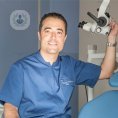3 points on pertussis
Written by:Pertussis (or whooping cough) cough is an infectious disease that, unfortunately, the incidence has increased this year, causing deaths in newborns and infants. This disease is much like the common cold, as it is transmitted through coughing and sneezing.

Symptoms of pertussis
In an initial phase, the main symptoms are runny nose, cough and fever usually mild, lasting between one and two weeks, as many colds. However, past two weeks, is passed to a phase of rapid deterioration that causes rapid coughing, wheezing, vomiting and extreme fatigue.
In the case of babies, they do not usually have much coughing but may have apnea (breathing stops). Pertussis in this phase usually lasts eight weeks and resolves slowly diminishing cough.
Diagnosis of Pertussis
Because pertussis is a well-known disease is easy to diagnose. In the event that the patient has the symptoms outlined above, you should visit the specialist in otolaryngology to examine and take samples of nasopharyngeal fluid to analyze the bacteria responsible for these symptoms.
Treatment and prevention of pertussis
Pertussis is treated with antibiotics (indicated for infections caused by intracellular bacteria). The sooner treatment starts, the better results.
Regarding prevention, there DTaP, a vaccine against whooping cough, diphtheria and tetanus is mandatory and is in the childhood immunization schedule of all the Autonomous Communities. This vaccine is given in three doses (at two, four and six months), a booster dose between 15 and 18 months and another six years. It is also recommended dosing every 10 years to maintain immunity. Although the vaccine does not guarantee 100% protection yes that mitigates symptoms in case of infection.
In the case of infants, as they do not receive the first vaccine to two months, it is recommended that pregnant women be vaccinated when they are between seven and eight months of gestation. Thus, the baby will be protected and avoid severely ill.



